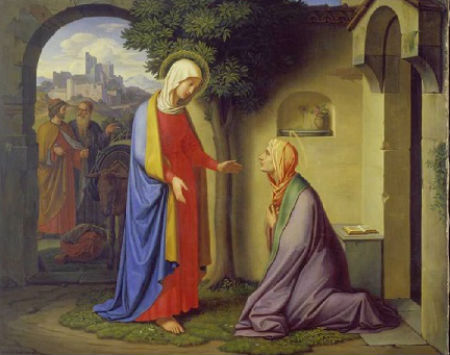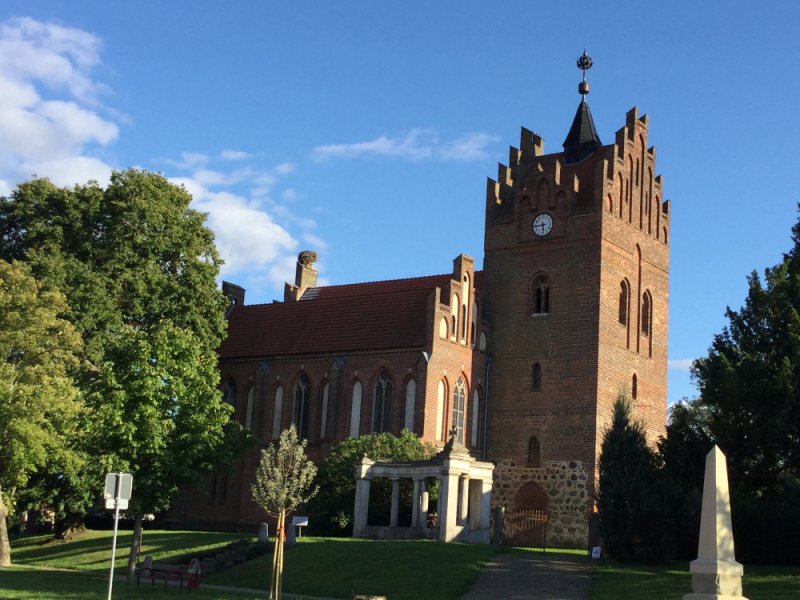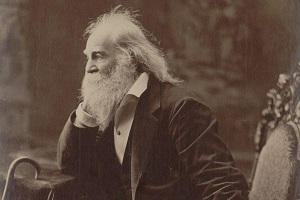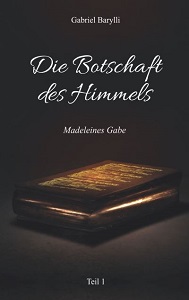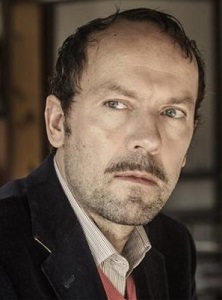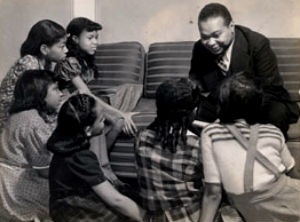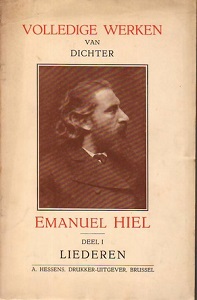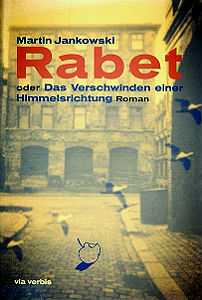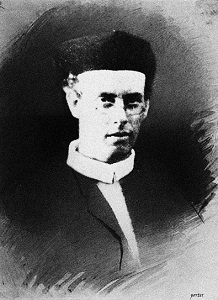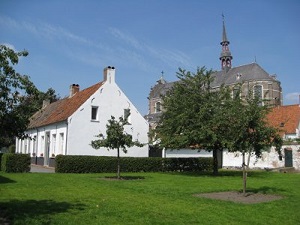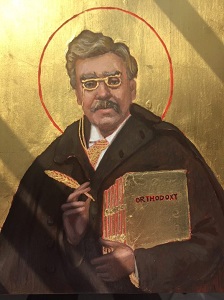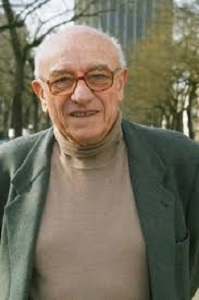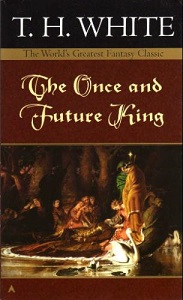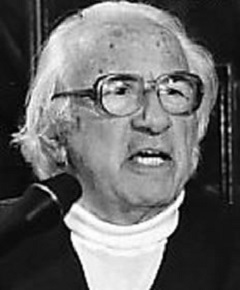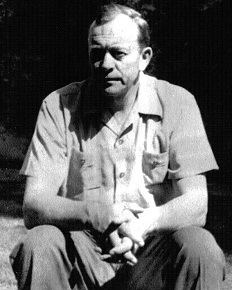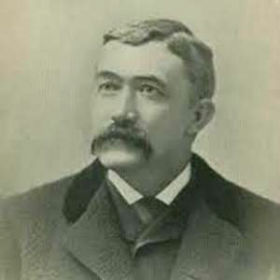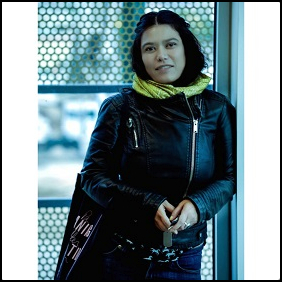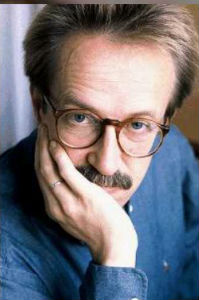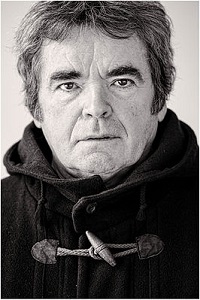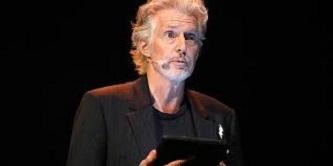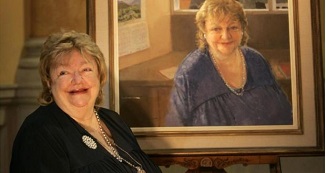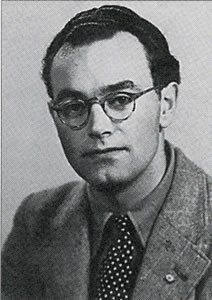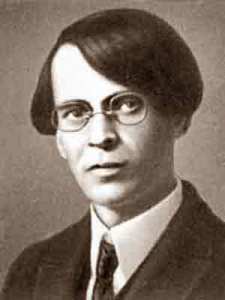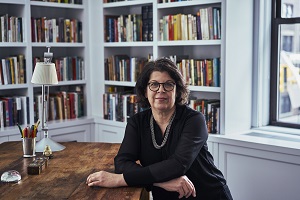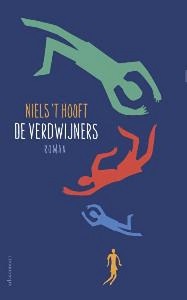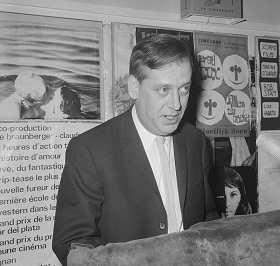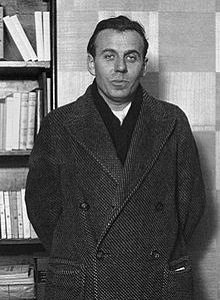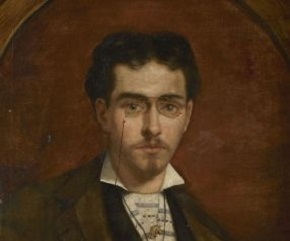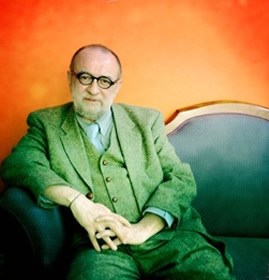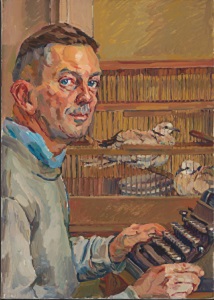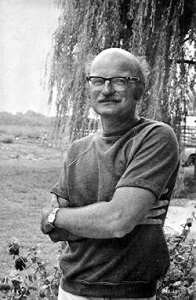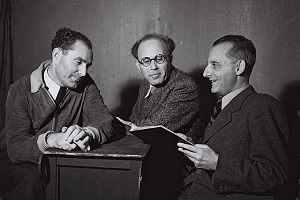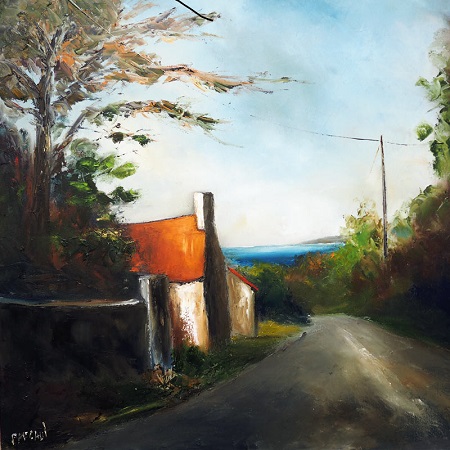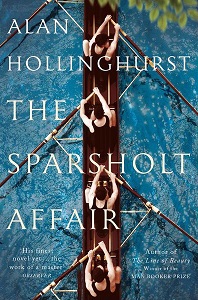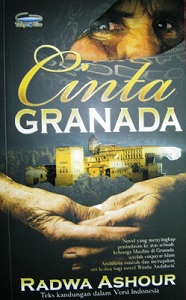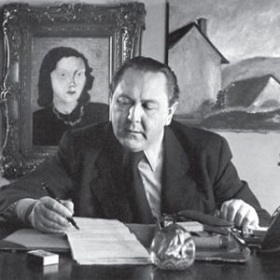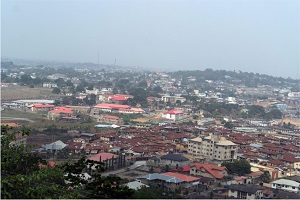De Oostenrijkse schrijver en essayist Egyd Gstättner werd geboren op 25 mei 1962 in Klagenfurt. Zie ook alle tags voor Egyd Gstättner op dit blog.
Uit: Karl Kraus lernt Dummdeutsch Oder Neue Worte für eine neue Welt
»Die Rede ist eine mächtige Herrin!«, lehrte mein Lieblingsphilosoph Gorgias aus Leontinoi, der berühmt dafür war, in ausverkauften antiken Stadien zu jedem beliebigen Thema das man ihm vorgab, glanzvolle, mitreißende Reden halten zu können. Gorgias galt auch als erster Anwalt der Geschichte: Er konnte einen Beweis führen und anschließend mit ebenso unbestreitbaren Argumenten das exakte Gegenteil beweisen. Mit solchen Schauprozessen wurde Gorgias stinkreich und sehr berühmt. Seine rhetorische Flexibilität haben heutige Talk-Coaches und vor allem Politiker abgekupfert: Ihm, Gorgias, werden Sätze zugeschrieben wie etwa: »Niemand kann mich daran hindern, klüger zu werden« (wenn man ihm einen Irrtum oder einen Widerspruch nachweisen wollte), aber auch solche Sentenz-Evergreens wie:
»Wir tun das Richtige, und das ist gut so!« Oder — besonders inhaltsgewichtig: »Wir müssen nach vorne schauen und an die Zukunft denken!« Man kann diesen Phrasengatsch als »Imponiergewurstel« verbuchen: Der Ausdruck stammt von Eckhard Henscheid, der in den achtziger Jahren des letzten Jahrhunderts den Begriff »Dummdeutsch« eingeführt hatte, also das Verschleierungsdeutsch in Politik, Werbung, Wirtschaft, in der »Psychoszene«, in den Massenmedien, im Feuilleton. Ganz schlimme Sprachkrebsgeschwüre der damaligen Intellektuellen waren zum Beispiel »Betroffenheit«, »Befindlichkeit«, »Selbstverwirklichung«et cetera. Mittlerweile hat sich das damalige Dummdeutsch zum Neudummdeutsch, Neudampfdeutsch oder Neudummbösdeutsch ausgewachsen, zum nachhaltig kompetenzorientierten, qualitätsgesicherten Zentralneuhochdummbösdeutsch wohlgemerkt. Die Sprache hat Erzeugergewalt. Worte sind kleine Dinge, aber sie können Großes bewirken. Worte verändern die Welt! Die Grenzenlosigkeit meiner Sprache ist die Grenzenlosigkeit meiner Welt! Indem ich Worte erfinde, erzeuge ich Welt. In jedem Schöpfungsbericht heißt es dementsprechend: Am Anfang war das Wort. Das Wort ist Fleisch geworden. Genau das bedeutet die lateinische Maxime: »Verba tene! Res sequenturkLudwig Wittgenstein sagte, Substantive verleiten uns, etwas zu suchen, das ihnen entspricht. Am Anfang war nicht das Wort, sondern die Worthülse. Und in die Worthülse schütten wir etwas hinein! Schaffe neue Worte, und du schaffst neue Menschen. Schaffe neue Phrasen, und du schaffst eine neue Gesellschaftsordnung. Ob der neue Mensch, die neue Gesellschaftsordnung besser sind als die alten, sei dahingestellt. Man muss ihn ja nicht unbedingt »liken«. Aber auf jeden Fall funktionieren sie besser im Sinn der Mächtigen_ Seit der epochale Redekurarzt und Wortschöpfer Sigmund Freud das Wort »Penisneid« geschaffen hat, gibt es ihn auch (Woody Allen war übrigens einer der ersten Männer, die sich dazu bekannt haben).“
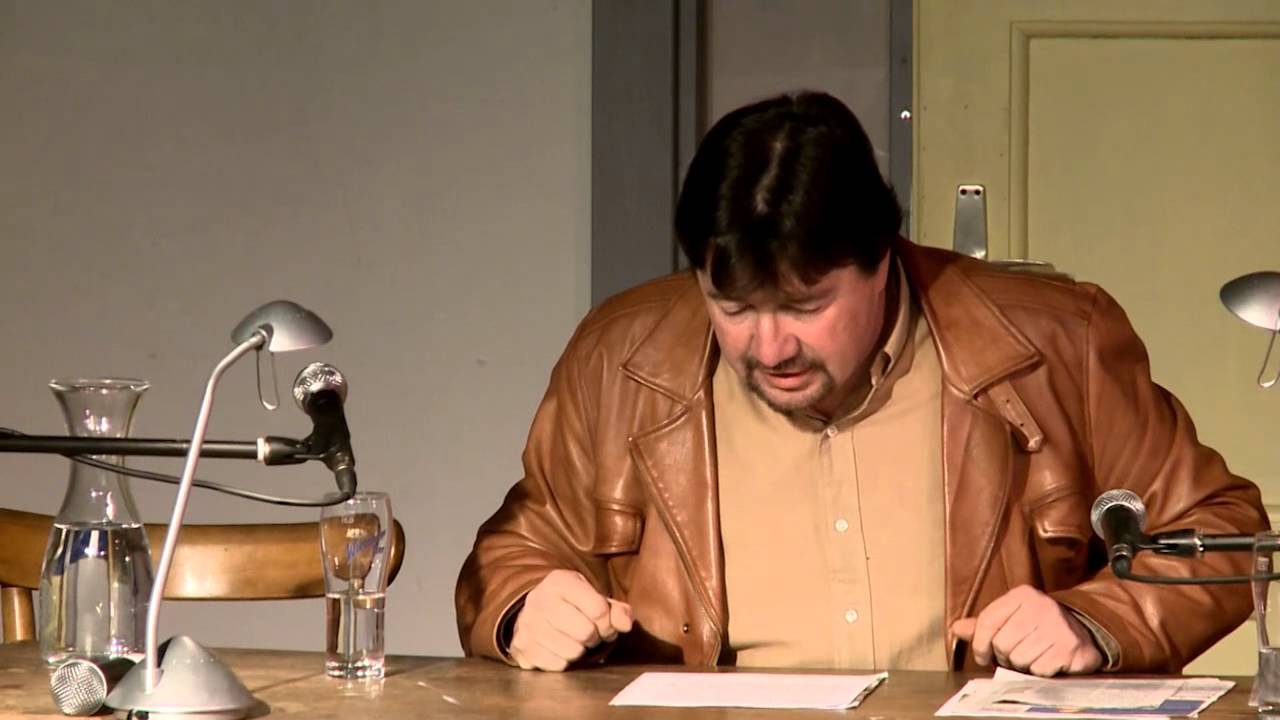
Egyd Gstättner (Klagenfurt, 25 mei 1962)
De Canadese schrijfster Madeleine Thien werd geboren op 25 mei 1974 in Vancouver, Brits Columbia. Zie ook alle tags voor Madeleine Thien op dit blog.
Uit: Do Not Say We Have Nothing
“In October, two police officers came to our door. They informed my mother that Ba was gone, and that the coroner’s office in Hong Kong would handle the file. They said Ba’s death was a suicide. Then, quiet (qù) became another person living inside our house. It slept in the closet with my father’s shirts, trousers and shoes, it guarded his Beethoven, Prokofiev and Shostakovich scores, his hats, armchair and special cup. Quiet (qù) moved into our minds and stormed like an ocean inside my mother and me. That winter, Vancouver was even more grey and wet than usual, as if the rain was a thick sweater we couldn’t remove. I fell asleep certain that, in the morning, Ba would wake me as he always had, his voice tugging me from sleep, until this delusion compounded the loss, and hurt more than what had come before.
Weeks crept by, and 1989 disappeared inside 1990. Ma and I ate dinner on the sofa every night because there was no space on our dining table. My father’s official documents—certificates of various kinds, tax declarations—had already been organized, but the odds and ends persisted. As Ma investigated the apartment more thoroughly, other bits of paper came to light, music scores, a handful of letters my father had written but never sent (“Sparrow, I do not know if this letter will reach you, but . . . ”) and ever more notebooks. As I watched these items increase, I imagined my mother believed that Ba would reincarnate as a piece of paper. Or maybe she believed, as the ancients did, that words written on paper were talismans, and could somehow protect us from harm.
Most nights, Ma would sit among them, still in her office clothes.
I tried not to bother her. I stayed in the adjoining living room and heard, now and then, the nearly soundless turning of pages.
The qù of her breathing.
Rain exploding and slicing down the window panes.
We were suspended in time.
Over and over, the No. 29 electric bus clattered past.”

Madeleine Thien (Vancouver, Brits Columbia, 25 mei 1974)
Cover
De Franse schrijfster Claire Castillon werd geboren op 25 mei 1975 in Neuilly-sur-Seine. Zie ook alle tags voor Claire Castillon op dit blog.
Uit: Giftspritzen: Rabenschwarze Erzählungen über Mütter und Töchter (Vertaald door Gaby Wurster)
“Gutaussehend, wie wir waren, mein Mann und ich, konnte ich mir nur schlecht vorstellen, dass wir eine solche Bürde auf uns nehmen würden, zumal es für meinen Mann, der eher zwei linke Hände hat, kein Pappenstiel gewesen wäre, einen Kinderwagen oder ein Bett mit den erforderlichen Maßen zu bauen. In Anbetracht solcher kleiner alltäglicher Dinge schlug ich schließlich vor – vielleicht ein bisschen zu plötzlich, zugegeben -, einen Zwilling zu beseitigen. Der Arzt erklärte, normale und Siamesische Zwillinge seien mitnichten zu vergleichen, und erläuterte mir, zutiefst bestürzt, ganz genau den Unterschied. Kinder sind nun mal nicht mein Spezialgebiet, wären es aber fast geworden. Können Sie sich das vorstellen? Von heute auf morgen muss eine Frau von fast vierzig Jahren zwei Heulsusen die Stirn bieten. Selbst mein Mann, der die Ruhe weg hat, nannte sie Nervensägen. Ich will niemanden verleumden, ich will nur klarstellen, dass der hinterhältige Zuträger in dieser Sache nicht ganz ehrlich ist.
Zwei Mädchen – was für eine Geschichte und was für ein Stress beim Gedanken an das ganze Theater in der Pubertät! Sie entwickelten sich gut, auf der Straße fielen sie auf, die Leute stellten mir völlig idiotische Fragen, auf die ich nur ausweichend antwortete. Ich wollte einfach nicht erzählen, in welcher Reihenfolge sie geboren wurden oder ob ich Schmerzen gehabt hatte, außerdem habe ich bei der Geburt geschlafen und überhaupt nichts gespürt. Und dann hat es eine halbe Ewigkeit gedauert, bis ich die eine von der anderen unterscheiden konnte. Ich bediente mich eines Tricks, der mit der kleinen Schwiele am Daumen zu tun hatte, den sie jeweils lutschten. Die eine lutschte den rechten, die andere den linken, und so bekam die, die den rechten Daumen lutschte, einen Vornamen mit R. Die kleinen Feinheiten ihrer Kindheit erspare ich Ihnen, aber Sie verstehen schon – zwei waren wirklich ziemlich viel.
Als sie drei Jahre alt waren, musste ich sie in den Kindergarten bringen. Bis dahin hatten wir uns mit der Limousine meines Mannes beholfen, aber natürlich hatte er ausgerechnet an diesem Tag auswärts zu tun. Ich musste die Mädchen herrichten – sie waren schon seit sechs Uhr wach und ganz aus dem Häuschen, weil sie ihre Ranzen einweihen durften. Sie hatten ihre Kleider getauscht und zankten sich wegen einer kleinen Haarspange; ich musste das Ding entzweibrechen, damit die Sache ein Ende hatte. Plötzlich fingen sie an zu weinen, wollten nicht mehr essen, sich nicht mehr anziehen und weigerten sich, zum Wagen zu gehen. Ich musste mich mit derjenigen mit dem Vornamen auf R herumschlagen, weil sie sich an die Sofakissen klammerte, und musste sie tragen – ich mit meinen Rückenschmerzen! Und dann, ein Unglück kommt ja selten allein, dann passten sie nicht in meinen Smart.“

Claire Castillon (Neuilly-sur-Seine, 25 mei 1975)
De Amerikaanse schrijfster en feminste Eve Ensler werd op 25 mei 1953 in New York geboren. Zie ook alle tags voor Eve Ensler op dit blog.
Uit:The Apology
“This apology required time. It could not be rushed. Fortunately, I have had practice here endlessly reliving and rehashing my crimes, mentally reenacting the details. I know you have said that an apology must be thorough and can only be trusted in its veracity and dedication to details. I have done my best. I have followed your very strict guidelines: Recognize what I have done as a crime. Face how deeply my actions and violations have impacted and devastated you. See you as a human being. Attempt to experience or feel what it felt like inside you. Feel profound remorse and regret over my actions. And finally, take responsibility for my actions by doing extensive work to understand what made me do what I did.
I will need to go back in this letter to locate the roots of my behavior. I will be as honest as a formerly disingenuous person can be. I will attempt to proceed with neither defensiveness nor self-pity, as I understand neither will further clarify nor resolve.
Many of the living do not believe they are in relationship with the dead. I was one of them, hiding in the delusion, or perhaps the hope, that what is gone is gone. That we pass through as flesh-and-blood creatures and die and rot or are burned into ether.
The dead are yearning for the living. It is only through the living, through their deepest imaginings and empathy, that the dead can be known to themselves and can be freed. And if the living are able and willing to access their love of the dead, able to access their anger at the dead, essentially to be in relationship and true dialogue with the dead, the dead will rise and speak. We remain lodged and hidden inside our families and loved ones, those we have harmed and those we have fostered. We are there inside the walls of the old houses and the silence of the evening, inside the celebratory moments, the rites and rituals of births and weddings and funerals and any place where the living long for the witness and approbation of the dead. We are there like a dormant cell in the bloodstream, waiting to be catalyzed by the devotion of the living, by the need of the living to understand and have resolution. There, ignited by the generosity of the living to remember and cherish and argue and wrestle and restore.”

Eve Ensler (New York, 25 mei 1953)
De Duitse schrijver Friedrich Dieckmann werd geboren op 25 mei 1937 in Landsberg an der Warthe. Zie ook alle tags voor Friedrich Dieckmann op dit blog.
Uit: Freiheit ist nur in dem Reich der Träume (Schillers Jahrhundertwende)
„Aber Goethe war nicht da, Goethe hatte sich davongemacht. Ein Jahr zuvor war er Hals über Kopf nach Italien aufgebrochen, weil er es nicht mehr ausgehalten hatte in der Hofluft und im Geheimen Conseil, in dem er zehn Jahre lang fleißig mitregiert hatte, ein Akt der Selbstkasteiung nach der dichterischen Eruption seiner Jugendjahre zwischen Frankfurt, Straßburg und Wetzlar. Der Flucht aus Frankfurt, der alten Reichsstadt, zu deren Patriziat der Enkel des Schultheißen, Sohn eines Kaiserlichen Rats gehörte, in die höfische Kleinwelt war elf Jahre später die flucht aus dieser Kleinwelt in den Süden, in das klassische Land gefolgt — Weimars Hauptdichter war abtrünnig geworden und hatte allerlei Hinterbliebene zurückgelassen, darunter Charlotte, die ihm nah verbundene Gattin des herzoglichen Stallmeisters v. Stein, der er dann aus Italien einen Brief nach dem andern schrieb. War es dem Neuankömmling beschieden, die Lücke auszufüllen? Schon in jungen Jahren hatte Schiller, der um ein Jahrzehnt Jüngere, den weimarischen Minister an der Seite seines noch sehr jungen Herzogs erblickt; beide hatten in Stuttgart die berühmt-berüchtigte Hochschule Carl Eugens, des württembergischen Herzogs, besucht; Schiller, der Medizinstudent, war zwanzig Jahre alt gewesen und hatte in Gegenwart der hohen Gäste für Prüfungsergebnisse in praktischer Medizin, Arzneimittellehre und Chirurgie drei Silbermedaillen in Empfang genommen. »Götz von Berlichingen« und »Clavigo« und natürlich den »Werther« hatte er zu dieser Zeit längst gelesen, Hauptwerke einer Periode, die unter dem Namen eines ihrer Theaterstücke, Klingen »Sturm und Drang« (Klinger hieß nun schon lange von Klinger und war in St. Petersburg russischer General), bekanntgeworden war. Hatte Goethe sie eröffnet, so hatte Schiller sie mit seinen »Räubern«, mit »IlIesko«, zuletzt mit »Kabale und liebe« an einen Punkt geführt, wo es nicht weiterging, es sei denn, man machte wirklich Revolution. Aber dafür gab es in Deutschland, dem in mehr als dreihundert unabhängige Territorien zersplitterten Kaiserreich, keine Aussicht. Davon hatte Schiller sich in der schwäbischen Heimat und am Mannheimer Nationaltheater und, wenn es noch eines Beweises bedurft hätte, auch in der kursächsischen Hauptstadt überzeugen können, wo eine katholische Dynastie, die unter August dem Starken konvertierten Wettiner, in zeremoniöser Abgeschlossenheit über dem protestantischen Staatsvolk thronte, dem nach der Katastrophe des Siebenjährigen Kriegs von klugen Ministern der Weg zu wirtschaftlichem und geistigem Fortschritt gewiesen worden war; die Resultate waren beachtlich.“

Friedrich Dieckmann (Landsberg an der Warthe, 25 mei 1937)
Goethe en Schiller monument in Weimar
De Amerikaanse dichter en schrijver Raymond Carver werd geboren op 25 mei 1938 in Port Angeles. Zie ook alle tags voor Raymond Carver op dit blog.
Uit: Beginners
“Casts and bandages, head to foot, the both of them. You know, you’ve seen it in the movies. Little eye-holes and nose-holes and mouth-holes. And she had to have her legs slung up on top of it. Well, the husband was very depressed for the longest while. Not about the accident, though. I mean, the accident was one thing, but it wasn’t everything. I’d get up to his mouth hole, you know, and he’d say no, it wasn’t the accident exactly but it was because he couldn’t see her through his eye-holes. He said that was what was making him feel so bad. Can you imagine? The man’s heart was breaking because he couldn’t turn his goddamn head and see his goddamn wife.”
Mel looked around the table and shook his head at what he was going to say.
“I mean, it was killing the old fart just because he couldn’t look at the fucking woman.”
We all looked at Mel.
“Do you see what I’m saying?”
Maybe we were a little drunk by them. I know it was hard keeping things in focus. The light was draining out of the room, going back through the window where it had come from. Yet nobody made a move to get up from the table to turn on the overhead light.”
“Listen,” Mel said. “Let’s finish this fucking gin. There’s enough left here for one shooter all around. Then let’s go eat. Let’s go to the new place.”
“He’s depressed,” Terri said. “Mel, why don’t you take a pill?”
Mel shook his head. “I’ve taken everything there is.”
“We all need a pill now and then,” I said.
“Some people are born needing them,” Terri said.
She was using her finger to rub at something on the table. Then she stopped rubbing.
“I think I want to call my kids,” Mel said. “Is that all right with everybody? I’ll call my kids.”
Terri said, “What if Marjorie answers the phone? You guys, you’ve heard us on the subject of Marjorie? Honey, you know you don’t want to talk to Marjorie. It’ll make you feel even worse.”
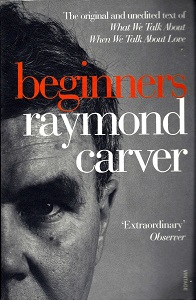
Raymond Carver (25 mei 1938 – 2 augustus 1988)
Cover
De Amerikaanse schrijfster Jamaica Kincaid (eig.Elaine Cynthia Potter Richardson) werd geboren in Saint John’s, Antigua en Barbuda, op 25 mei 1949. Zie ook alle tags voor Jamaica Kincaid op dit blog.
Uit: Annie John
“Outside, as usual, the sun shone, the trade winds blew; on her way to put some starched clothes on the line, my mother shooed some hens out of her garden; Miss Dewberry baked the buns, some of which my mother would buy for my father and me to eat with our afternoon tea; Miss Henry brought the milk, a glass of which I would drink with my lunch, and another glass of which I would drink with the bun from Miss Dewberry; my mother prepared our lunch; my father noted some perfectly idiotic thing his partner in housebuilding, Mr. Oatie, had done, so that over lunch he and my mother could have a good laugh.
The Anglican church bell struck eleven o’clock—one hour to go before lunch. I was then sitting at my desk in my classroom. We were having a history lesson—the last lesson of the morning. For taking first place over all the other girls, I had been given a prize, a copy of a book called Roman Britain, and I was made prefect of my class. What a mistake the prefect part had been, for I was among the worst-behaved in my class and did not at all believe in setting myself up as a good example, the way a prefect was supposed to do. Now I had to sit in the prefect’s seat—the first seat in the front row, the seat from which I could stand up and survey quite easily my classmates. From where I sat I could see out the window. Sometimes when I looked out, I could see the sexton going over to the minister’s house. The sexton’s daughter, Hilarene, a disgusting model of good behavior and keen attention to scholarship, sat next to me, since she took second place. The minister’s daughter, Ruth, sat in the last row, the row reserved for all the dunce girls. Hilarene, of course, I could not stand. A girl that good would never do for me. I would probably not have cared so much for first place if I could be sure it would not go to her. Ruth I liked, because she was such a dunce and came from England and had yellow hair. When I first met her, I used to walk her home and sing bad songs to her just to see her turn pink, as if I had spilled hot water all over her.
Our books, A History of the West Indies, were open in front of us. Our day had begun with morning prayers, then a geometry lesson, then it was over to the science building for a lesson in “Introductory Physics” (not a subject we cared much for), taught by the most dingy-toothed Mr. Slacks, a teacher from Canada, then precious recess, and now this, our history lesson.”
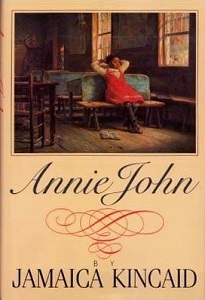
Jamaica Kincaid (Saint John’s, 25 mei 1949)
Cover
De Amerikaanse schrijver Robert Ludlum werd geboren in New York op 25 mei 1927. Zie ook alle tags voor Robert Ludlum op dit blog.
Uit: The Road to Gandolfo
“I really think the office of the presidency—regardless of what you may think of the man—as commander in chief he—”
“Horse—shit!” The brigadier general roared again, separating the words in equal emphasis, giving the crudity of his oath the sound of a military cadence. “I’m simply explaining to you—in the strongest terms I know—that you don’t publicly court-martial a MacKenzie Hawkins to satisfy a Peking complaint, no matter how many goddamned trade agreements are floating round. Do you know why, Lieutenant?”
The young officer replied softly, sure of his accuracy. “Because he would make an issue of it. Publicly.”
“Bing-go.” Symington’s comment sprang out in a high-pitched monotone. “The Hawkinses of this country have a constituency, Lieutenant. That’s precisely why our commander in chief picked him! He’s a political palliative. And if you don’t think Mac Hawkins knows it, well—you didn’t have to recruit him. I did.”
“We are prepared for that reaction, General.” The lieutenant’s words were barely audible.
The brigadier leaned forward, careful not to put his elbows in the shattered glass. “I didn’t get that.”
“The State Department anticipated a hard-line counter-thrust. Therefore we must institute an aggressive counteraction to that thrust. The White House regrets the necessity but at this point in time recognizes the crisis quotient.”
“That’s what I thought I was going to get.” Symington’s words were less audible than the lieutenant’s. “Spell it out. How are you doing to ream him?”
The lieutenant hesitated. “Forgive me, sir, but the object is not to—ream General Hawkins. We are in a provocatively delicate position. The People’s Republic demands satisfaction. Rightly so; it was a crude, vulgar act on General Hawkins’s part. Yet he refuses to make a public apology.”
Symington looked at the report still in his right hand. “Does it say why in here?”

Robert Ludlum (25 mei 1927 – 12 maart 2001)
New York
De Amerikaanse dichter Theodore Huebner Roethke werd geboren in Saginaw, Michigan op 25 mei 1908. Zie ook alle tags voor Theodore Roethke op dit blog.
The Far Field
I
I dream of journeys repeatedly:
Of flying like a bat deep into a narrowing tunnel
Of driving alone, without luggage, out a long peninsula,
The road lined with snow-laden second growth,
A fine dry snow ticking the windshield,
Alternate snow and sleet, no on-coming traffic,
And no lights behind, in the blurred side-mirror,
The road changing from glazed tarface to a rubble of stone,
Ending at last in a hopeless sand-rut,
Where the car stalls,
Churning in a snowdrift
Until the headlights darken.
II
At the field’s end, in the corner missed by the mower,
Where the turf drops off into a grass-hidden culvert,
Haunt of the cat-bird, nesting-place of the field-mouse,
Not too far away from the ever-changing flower-dump,
Among the tin cans, tires, rusted pipes, broken machinery, —
One learned of the eternal;
And in the shrunken face of a dead rat, eaten by rain and ground-beetles
(I found in lying among the rubble of an old coal bin)
And the tom-cat, caught near the pheasant-run,
Its entrails strewn over the half-grown flowers,
Blasted to death by the night watchman.
I suffered for young birds, for young rabbits caught in the mower,
My grief was not excessive.
For to come upon warblers in early May
Was to forget time and death:
How they filled the oriole’s elm, a twittering restless cloud, all one morning,
And I watched and watched till my eyes blurred from the bird shapes, —
Cape May, Blackburnian, Cerulean, —
Moving, elusive as fish, fearless,
Hanging, bunched like young fruit, bending the end branches,
Still for a moment,
Then pitching away in half-flight,
Lighter than finches,
While the wrens bickered and sang in the half-green hedgerows,
And the flicker drummed from his dead tree in the chicken-yard.
— Or to lie naked in sand,
In the silted shallows of a slow river,
Fingering a shell,
Thinking:
Once I was something like this, mindless,
Or perhaps with another mind, less peculiar;
Or to sink down to the hips in a mossy quagmire;
Or, with skinny knees, to sit astride a wet log,
Believing:
I’ll return again,
As a snake or a raucous bird,
Or, with luck, as a lion.
I learned not to fear infinity,
The far field, the windy cliffs of forever,
The dying of time in the white light of tomorrow,
The wheel turning away from itself,
The sprawl of the wave,
The on-coming water.
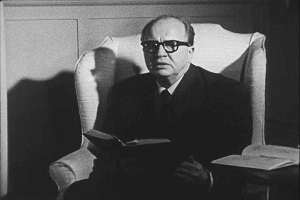
Theodore Roethke (25 mei 1908 – 1 augustus 1963)
Zie voor nog meer schrijvers van de 25e mei ook mijn blog van 25 mei 2017 en ook mijn blog van 25 mei 2015 deel 2.
